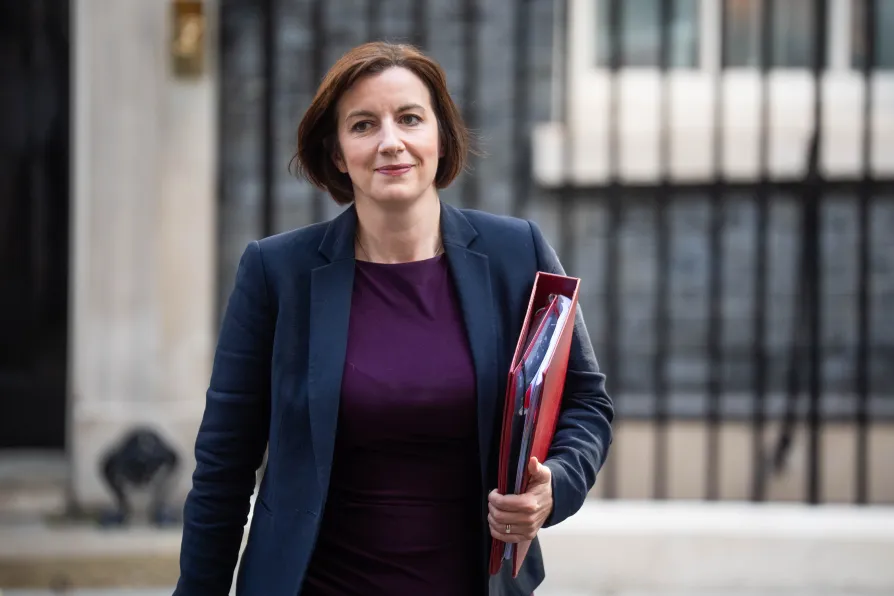
 Education Secretary Bridget Phillipson leaves 10 Downing Street, London, following a Cabinet meeting, September 16, 2025
Education Secretary Bridget Phillipson leaves 10 Downing Street, London, following a Cabinet meeting, September 16, 2025
SCOTLAND’S young people “can’t afford a third decade of the SNP,” according to Labour deputy leadership hopeful Bridget Phillipson.
The Education Secretary made the remarks on a campaigning visit to Glasgow on Sunday, pledging to work “day and night” to replace the SNP Scottish government with an Anas Sarwar-led Labour administration at next year’s Holyrood elections.
Despite voting to keep the two-child benefit cap, Ms Phillipson — who heads the Westminster government’s child poverty task force — has used her deputy leadership campaign to say its abolition was “on the table.”
Arguing that Labour governments on both sides of the border “working together” was the “best way to lift Scottish children out of poverty,” she said: “More than 10,000 children in Scotland had nowhere to call home last year, the attainment gap between the poorest and richest pupils is stubbornly wide and college places are at their lowest level in a decade.
“Scotland’s young people can’t afford a third decade of the SNP. They need a fresh start and new direction with Scottish Labour and Anas Sarwar as first minister.
“Reform in Scotland are just a bunch of chancers, all they’ll do is let the SNP hang on.
“Only a united Labour Party can beat the SNP and deliver the change Scotland needs.”
SNP MSP Stuart McMillan however hit back, saying: “The Labour Party has now been in government for over a year and has kept the abhorrent two-child benefit cap.
“Meanwhile, the SNP Scottish government is scrapping the cap from March next year.
“While the SNP is lifting children out of poverty, we’re getting more empty words from another Labour politician.
“So, while Labour continues to treat Scotland as an afterthought, the SNP is putting your interests first and working for a fresh start with independence.”
A Scottish government spokesperson added: “We are absolutely committed to tackling child poverty and our policies are making a meaningful difference to families.
“Child poverty has fallen in Scotland, in contrast to the rest of the UK.
“Our policies are having to work harder in the current economic context because of decisions taken by the UK government, like keeping the two-child limit on universal credit.
“Given the UK government refuse to lift this cap, we are developing the systems required to effectively scrap its impact from next year.”

It is time to stop tolerating the governing elites incompetence which makes our lives a daily misery, argues MATT KERR

Having endured 14 years of Tory austerity followed by Starmerite cuts, young voters are desperate for change — but Anas Sarwar’s refusal to differentiate from Westminster means Scottish Labour risks electoral catastrophe, writes LAUREN HARPER











